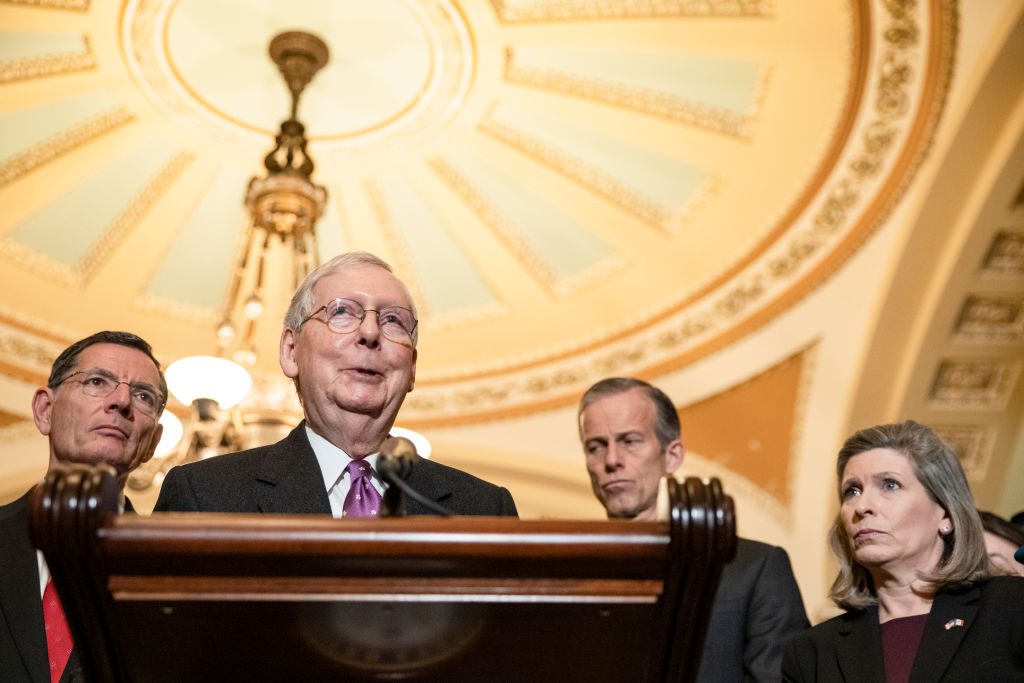Despite Humanitarian Concerns, Senate Fails To Block $23 Billion UAE Arms Sales

Sen. Rand Paul (R-Ky.) spoke on the Senate floor Wednesday night expressing support for two bipartisan joint resolutions of disapproval to block the Trump administration’s $23 billion arms sales to the United Arab Emirates. Ultimately the Senate failed to block the weapons sales despite bipartisan concern.
“I urge my colleagues to consider the possible consequences of this sale. We should not accelerate an arms race in the Middle East. I urge a vote in support of these resolutions of disapproval,” said Sen. Paul. “Someone must ask the question: Can a lasting peace be purchased with more weapons?”
The deal is the largest weapons sale of Trump’s presidency, and was approved by the State Department in November after the UAE agreed to formalize diplomatic relations with Israel. The deal includes the sale of 50 F-35s, 18 MQ–9B Reapers, thousands of munitions and hundreds of missiles.
Although billed as strengthening the UAE as a bulwark against Iran, critics of the deal say it will touch off an arms race, ignores risks to Israel, and that U.S. weapons and sensitive military technology will end up in the wrong hands. The security of the technology and the impact on Israel’s qualitative military edge were the two concerns that came up most frequently in talks with Congress, a senior State Department official told CNN.
Sens. Bob Menendez, Chris Murphy, D-Conn., and Rand Paul, R-Ky., sponsored legislation to bar the sales.
Paul said the United Arab Emirates’ record should raise concerns.
“The primary questions we should be asking ourselves: To what ends has the UAE deployed its military—and its military technology—in recent years? Does the UAE have a record that we can trust?” Paul tweeted. “What military behavior are we encouraging and rewarding with this sale? Will the U.S. bear responsibility if the UAE misuses these incredibly sophisticated weapons? The answers to these questions are far from clear. In fact, the UAE’s record should give us pause.”
U.S. weapons sold to Saudi Arabia and the UAE have made it into the hands of al-Qaeda-linked fighters, militias and others fighting in Yemen as recently as 2019, according to a CNN report that outlines the thriving U.S. arms resale business in UAE.
In one arms market, sweets were displayed among the ammunition. “Do you have American guns here?” CNN asked. “The American guns are expensive and sought after,” the weapons trader replied, in an exchange captured by undercover CNN cameras.
Even if the weapons remain in the UAE’s hands, they will still likely be used to kill innocent people and accelerate civil wars.
The United Arab Emirates is currently fueling civil wars in Libya and Yemen, intensifying the horrific humanitarian crises in both countries, according to U.S. intelligence reports. The UAE was behind multiple missile strikes on civilians in Libya, and had a role in at least one potential war crime, the Huffington Post reported. In Yemen, 233,000 people have died in the war and resulting famine, according to the UN humanitarian office.
“The United States should be working to deescalate conflict in the Middle East, not fueling it by selling more and more weapons to regimes using them to kill civilians,” tweeted Sen. Bernie Sanders.
Four pending joint resolutions of disapproval will allow lawmakers to put their names on the record against the arms sales, but even if the resolutions pass, Trump will likely veto them when they reach his desk. Trump has vetoed several previous bipartisan measures to curb arms sales to Saudi Arabia and the UAE.